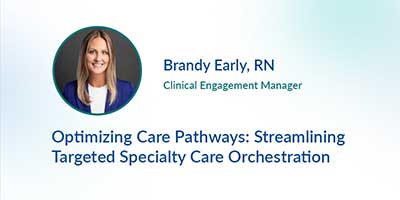Videos
Watch our videos to learn how to leverage our services.
Videos
Care Pathways
The Fix: How AristaMD Is Quietly Revolutionizing Healthcare Access
Keith Pinter, CEO at AristaMD, recently joined The Broken Healthcare Podcast to discuss a critical challenge facing healthcare today: how seniors navigate specialty care access.
You Won’t Believe How Broken It Is — And How He’s Fixing It
Keith Pinter, CEO at AristaMD, recently joined The Broken Healthcare Podcast to discuss a critical challenge facing healthcare today: how seniors navigate specialty care access.
Mastering Care Gap Closure: Data-Driven Strategies
Xanthe Bible, Operations Manager, and Kate McDonald, SVP of Strategy at AristaMD, share proven methodologies for identifying and closing care gaps to improve patient outcomes and quality scores.
The Power of Trust – Why Seniors Rely on Primary Care
The Broken Healthcare Podcast featured Keith Pinter, CEO of AristaMD, who discussed simplifying access to specialty care starts with strengthening the primary care relationship with seniors.
Rethinking Specialty Care: Strategies For Smarter Access and Better Outcomes
Learn how providers can leverage innovative solutions to manage patients more effectively within primary care by enhancing access to timely, cost-effective, and evidence-based specialty care through eConsult…
Optimizing Care Pathways: Streamlining Targeted Specialty Care Orchestration
Join Brandy Early, RN, for an informative session on optimizing care pathways and streamlining targeted specialty care orchestration. Learn how simplifying care coordination and aligning specialty services can enhance patient outcomes, reduce delays…
Diagnosis and Treatment of Congestive Heart Failure in the Primary Care Setting
In this webinar, Dr. Imburgia explains how a primary care provider can help diagnose and treat Congestive Heart Failure (CHF) by understanding heart failure risk factors; how to identify heart failure in those at-risk; principles of heart failure management…
Navigating Gastrointestinal Conditions: Diagnosis, Treatment, and Best Practices
In this webinar, Dr. Korenblit will explain how a primary care provider can help diagnose and treat common Gastrointestinal conditions by: understanding the function of the pancreas in normal digestion; describing exocrine pancreatic insufficiency (EPI)….
Navigating Orthopedic Challenges: Leveraging eConsults for Common Conditions
Learn how a primary care provider can help diagnose and treat common orthopedic conditions by identifying orthopedic conditions suitable for local management and
understanding an overview of different types of arthritis, including osteoarthritis (OA).









